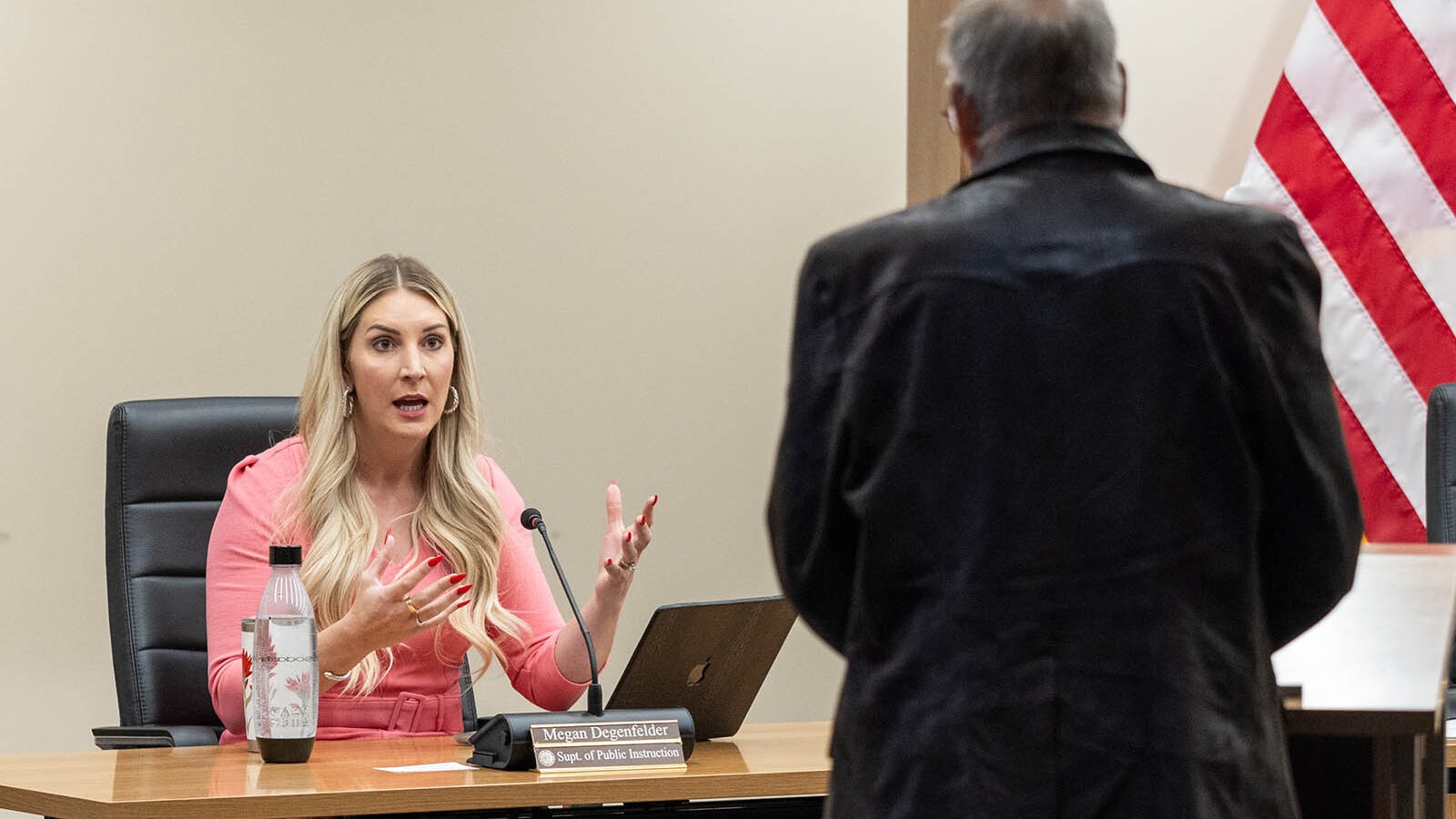A lawsuit challenging the ability of a Weston County commissioner to serve in one county while living in another has been dismissed.
On June 1, state district Judge James Causey in Newcastle dismissed the lawsuit against Commissioner Tony Barton that had been filed by Garrett Borton, a citizen of Weston County.
The lawsuit stems from Barton’s decision to move out of Weston County and into neighboring Crook County in the middle of his term.
In his lawsuit, Borton claimed Barton was no longer a “qualified elector” in Weston County because he moved outside of the county and became a qualified elector in Crook County.
Borton asked the court to issue a temporary injunction that would prevent Barton from voting on the commission or receiving pay from the county. The injunction requested by Borton would have allowed Barton to sit on the board through the end of his term that ends in January 2023.
Causey, in ruling the lawsuit raised no claim for which there as no remedy, centered his dismissal on the question of whether state law specifically requires a person to be a resident of a county to serve in office.
“Although (Borton) is correct that the courts must read the statutes together as a whole, his argument necessarily assumes that a residency requirement exists in the statutes, if only because a ‘qualified elector’ must be ‘registered to vote,’ and the process of registration can involve making such determinations as residency,” Causey wrote. “Neither the statute setting forth the qualifications of county commissioners nor the statute defining ‘qualified electors’ contains an explicit residency requirement.”
As of June 2021, Barton was set to make $1,200 a month in his role as a commissioner. Borton’s lawsuit did not seek any back pay.
Barton said he is a qualified elector because of his lawful 2018 election that allows him to continue serving all his commissioner duties. He said Borton’s demands were illegal and he did not pursue the proper legal course to have Barton removed.
Borton represented himself in the case, which he said was to his detriment.
Borton and some other citizens asked Barton to resign in April 2021 and he said Barton told the group he would consider doing so, but never did. Borton filed his lawsuit in October 2021.
Borton said he is worried about the implications of Causey’s decision because Barton could vote for tax increases and other important measures for Weston County that won’t affect him as a Crook County resident.
“Quite a few of us are concerned about the exposure of the commissioner on this,” Borton said. “He needs to be held accountable to the decision he made.”
Barton did not return requests for comment.
Wyoming law requires people to vote in the county where they live, Borton said, a rule that also applies to elected officials.
The Wyoming Constitution requires voters to be residents of the state and county they vote in, but is unclear about whether elected officials need to live within the jurisdictions they serve.
The Legislature made changes to state statutes in 2021, according to Causey, “at least in part because of facts of this case.”
In the 2021 Wyoming Legislature, lawmakers approved House Bill 187, sponsored by former Rep. Hans Hunt, to require each county commissioner to be a resident of the county in which the commissioner serves.
The law took effect in July 2021, but only applies to elected or appointed county officers whose terms commenced on or after that point.
“Should Wyoming be doing things in the Legislature to address current things that are happening outside it?” Sen. Ogden Driskill, R-Devils Tower, said in reference to this bill and others he found to be too reactionary and politicized in nature.
Borton said the bill was inspired by Barton’s actions, but added he never thought it could pass. He said its passage will prevent future scenarios like these from happening again.
Borton said Barton brought up the law during a March hearing in his defense, saying it cannot be applied retroactively.
Borton said the law should not have affected the judge’s decision and argued Barton should be disqualified from office because of of other laws defining “registration” and “registry list” in relation to what determines a qualified elector.
In 2019, Weston County elected a county attorney who did not reside in the county at the time of the election. Borton said he found this situation to be a little different because the voters knew that attorney, Alex Berger, lived outside the county at the time they were voting for him.
Borton said he found it ironic that Barton, who he said opposed Berger being allowed on the ballot that year, also used the situation as part of his defense.
Borton said the voters were not made aware Barton was moving outside the county and may not have voted for him if they had.
Barton is not running for re-election as he is now ineligible to do so.
Despite losing his case, Borton still considers it a success.
“To me, by exposing the person in this decision, this may lead to people like Tony Barton getting exposed to citizens around the state,” Borton said. “Some of those things are getting exposed that are happening right under their chins.”





